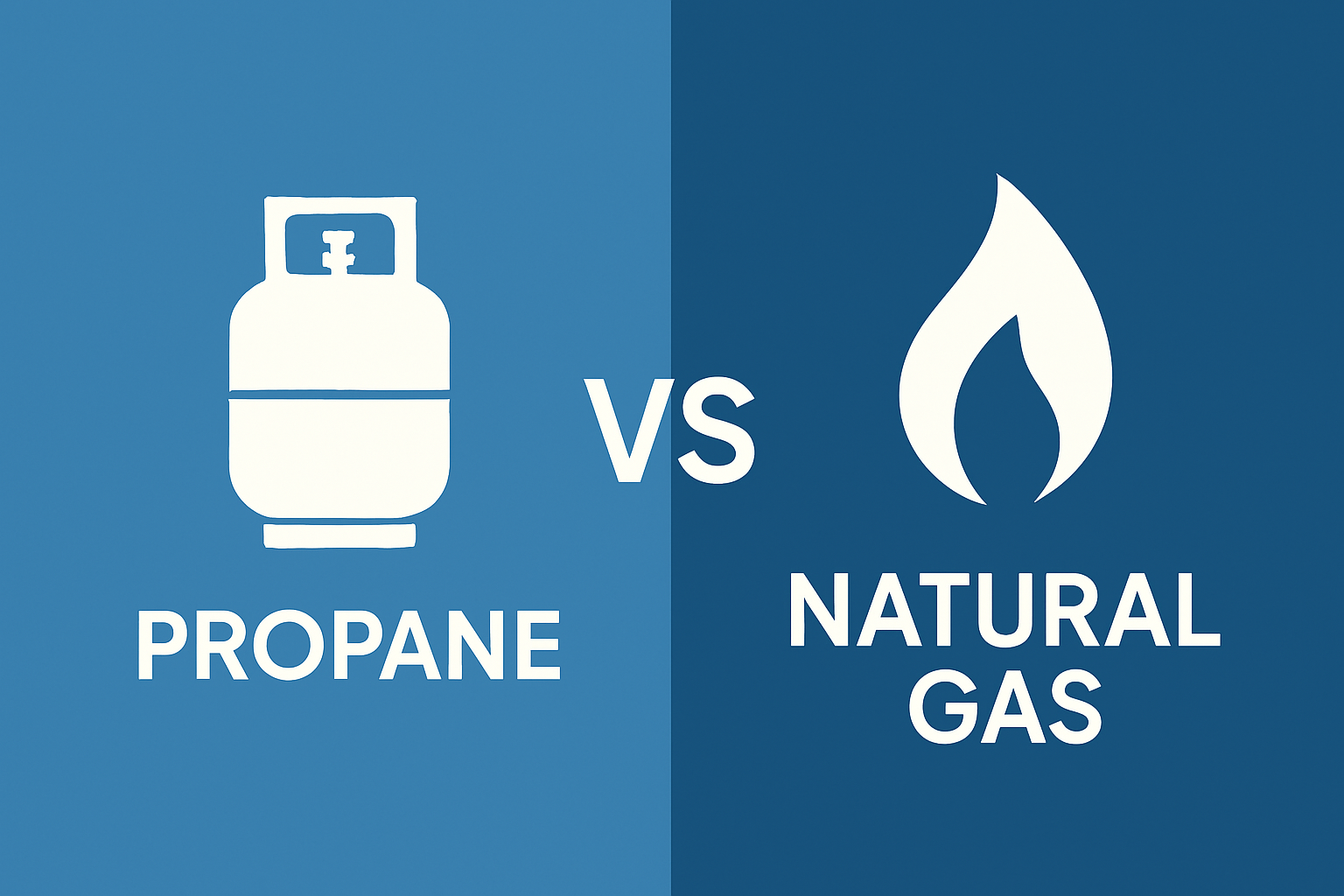When investing in a whole-home generator, one of the most important decisions you’ll make is choosing the right fuel type. Most standby generators run on either propane or natural gas, and while both are excellent options for reliable backup power, each has unique benefits and considerations.
So, which one is right for your home?
In this post, we’ll break down the key differences between propane and natural gas generators, helping you make the most informed choice for your situation—especially if you live in Jacksonville, FL or surrounding areas.
⛽ Fuel Availability
Natural Gas:
If your home is already connected to a natural gas utility, this can be the most convenient option. Natural gas is delivered via underground pipelines, so you don’t need to worry about fuel deliveries or storage tanks. It’s a set-it-and-forget-it solution.
Propane:
Propane must be stored in a tank on your property and refilled by a delivery service. While this adds a bit more responsibility, it’s a great option for rural properties or homes not connected to a gas line.
✅ Winner: Natural gas for convenience, propane for off-grid or rural homes.
⚡ Generator Runtime and Efficiency
Natural Gas:
Because it’s piped in continuously, natural gas offers unlimited runtime—great for extended outages during hurricanes or utility grid failures. However, it typically provides slightly lower energy output compared to propane.
Propane:
Propane burns hotter and cleaner than natural gas, which can lead to slightly better fuel efficiency and more power per unit. However, once your tank is empty, you’ll need to wait for a refill.
✅ Winner: Propane for efficiency, natural gas for long-term runtime.
💸 Cost of Fuel
Natural Gas:
In most areas, natural gas is cheaper per BTU than propane. Utility prices can fluctuate, but gas is generally less expensive due to its direct delivery and large-scale infrastructure.
Propane:
Propane prices vary more widely depending on market conditions, delivery fees, and tank rental agreements. Over time, it can cost more to run a propane-powered generator.
✅ Winner: Natural gas for cost-effectiveness.
🌿 Environmental Impact
Natural Gas:
It’s considered a clean-burning fossil fuel and produces fewer emissions than diesel or gasoline. However, it still emits carbon dioxide and methane, which are greenhouse gases.
Propane:
Propane is one of the cleanest fossil fuels available. It emits fewer greenhouse gases and doesn’t degrade over time, making it a solid option for eco-conscious homeowners.
✅ Winner: Propane, for its low emissions and long shelf life.
🛠️ Installation & Maintenance
Natural Gas:
If your home already has gas service, connecting a whole-home generator is relatively straightforward. If not, getting a gas line run can add significant time and cost to the installation.
Propane:
Installing a propane tank (above or below ground) requires space and coordination with a propane supplier. However, it offers more location flexibility and independence from municipal utilities.
✅ Winner: It depends. Natural gas is easier if you already have service. Propane is more versatile if you don’t.
🧠 Final Thoughts: Which Fuel Source Is Best for Your Whole-Home Generator?
Here’s a quick summary to help you decide:
| Factor | Natural Gas | Propane |
|---|---|---|
| Availability | Best for urban areas with utility access | Best for rural or off-grid homes |
| Runtime | Unlimited with utility connection | Limited by tank size |
| Fuel Cost | Typically cheaper | Can be more expensive |
| Emissions | Clean-burning | Cleaner-burning |
| Installation | Simple with existing gas line | Requires tank installation |
| Efficiency | Slightly less efficient | More efficient per BTU |
💡 Need Help Choosing?
At Current Electrical Contractors, we install whole-home generators across Jacksonville, FL that can run on either natural gas or propane. We’ll help you evaluate your home’s setup, power needs, and local fuel availability to find the best standby generator solution for you.
👉 Looking for reliable backup power? Explore our professional home generator installation services →
Contact us today or fill out our generator estimate form to get a quote within 24 hours!

